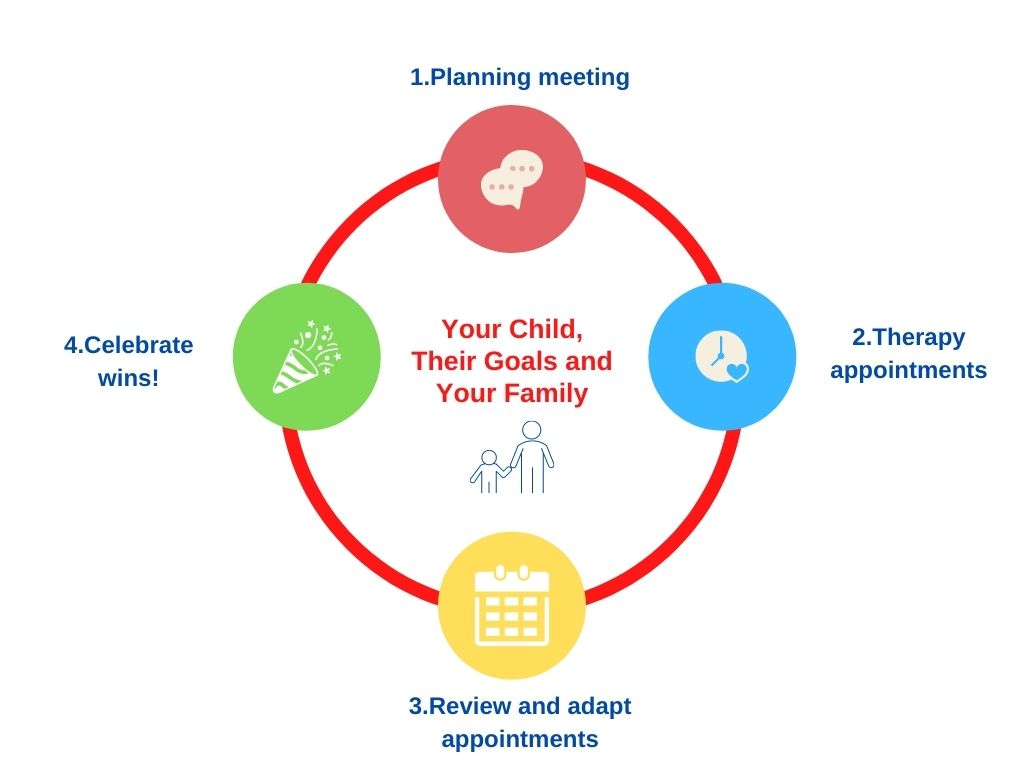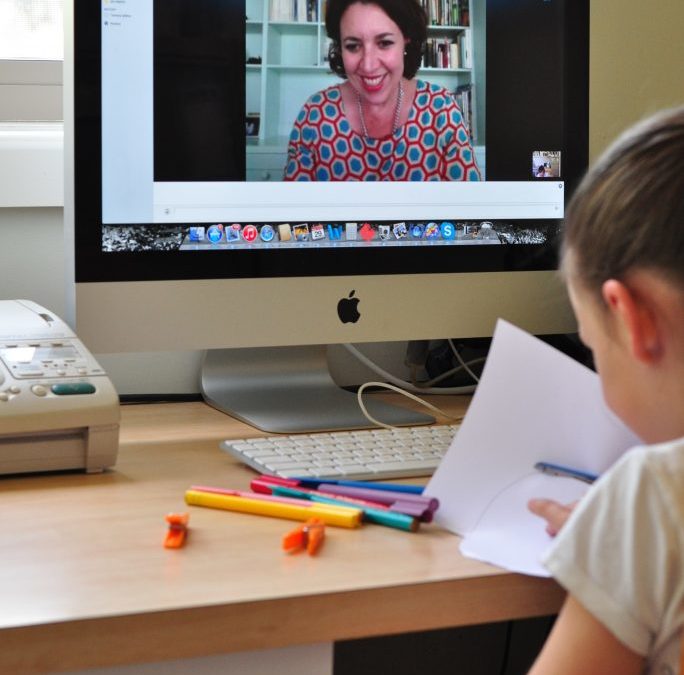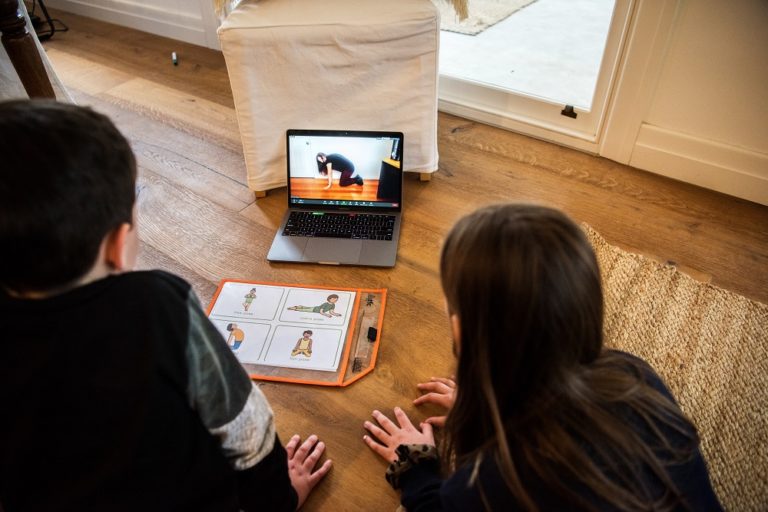At Therapy Connect, we are proud to be one of Australia’s largest providers of Allied Health services to children and their families via the convenience and effectiveness of telehealth.
We take a very thorough approach with each family to help you understand the therapy process and plan your services so your child works towards their goals in ways that are helpful, stress-free and empowering.
We speak with hundreds of families every week and because we have our “ear to the ground”, we are aware that many families are concerned at present because their funding arrangements are being extended over longer time periods and some budgets are reducing in size.
While there will always be a need for flexibility to meet each child’s therapy needs, we put together this article to help you get the most out of your supports, feel more confident and to help you with your plan review process.
Step 1: Getting started with NDIS-funded therapy supports
Most carers / parents start their child’s therapy journey (and potentially NDIS funding) when they investigate concerns about their child’s development.
These developmental concerns may include how your child plays and moves around, how they do things to take care of themselves, how they socialise with other children, or how they communicate their wants and needs.
If this describes your situation, and you are looking for funding support from the NDIS or to know how to get started, make contact with an NDIS Early Childhood Partner to discuss your concerns.
An NDIS Early Childhood Partner is an independent organisation contracted by the NDIS to deliver therapy reviews and supports. You can find an NDIS Early Childhood Partner in your State via this website: www.ndis.gov.au/understanding/ndis-each-state.
Alternatively, talk to your doctor or other health professional about your child’s development and they can help you with a referral to NDIS if needed.
It is important to note that you do not need a formal diagnosis to get the support your child needs.
When you first meet with an NDIS Early Childhood Partner, they will work with you to understand your child’s strengths and challenges, look at other information and reports you might have, offer some helpful information, discuss a variety of options, make recommendations and determine the next steps.
You will need to provide any information from your child’s doctor, early childhood educator, allied health professional or child health nurse that demonstrates that your child has a developmental delay or disability.
This video provides more information about connecting with an NDIS Early Childhood partner:
Step 2: Finding your therapy providers
This next step can be overwhelming for many families as they try and ring around to locate a team of practitioners who can support their child. You may need Occupational Therapists, Speech Therapists, Dietitians, Physiotherapists or Psychologists who are experienced working with children and who have availability for new clients.
Then you will need to communicate with each of your various therapists to determine what is the order of priority of each type of therapy that will be delivered and the best timeframes to put in place so your child benefits from the process and the appointments and home learning activities are manageable for the whole family.
Many years ago, Therapy Connect identified that this as a point where many families can become overwhelmed as they face the challenges of learning what each therapist does and what order to book the therapy sessions, the frequency and focus of each aspect of therapy.
We take the time to create an integrated and detailed plan with each family so that therapy is coordinated and sequenced to meet each child’s goals. This planning process makes a huge difference to our families as we are here to listen to your situation, understand your story and tailor the right approach so that you get the most out of your therapy journey and your plan.
Plus, best of all, your child’s therapy team will coordinate the services they deliver so the process is integrated and maximises your funding without you needing to manage and coordinate each therapist.
Our process is shown here in the Therapy Connect Way:

Step 3: Reviewing Your NDIS Plan and Supports
Then comes the time when you have outgrown your initial therapy plan and you need to make adjustments to match your child’s support requirements and perhaps even seek a change in your funding arrangement.
If your child receives early childhood intervention supports, their early childhood partner will usually conduct their review. This usually takes the form of a full plan review every 12 months but sometimes a plan will be for up to 24 months where support needs are likely to remain stable.
When your child’s plan is nearing its end date, the planner will call you to check-in with you and see how your child is going and book a plan review meeting. We will provide you with a review report which will outline the services which have been provided, a progress update including outcomes achieved and future recommendations which you can share with your planner.
It is important to let your practitioners know when the plan review meeting has been arranged and when you receive your new plan. If there have been any changes to the supports which have been funded, Therapy Connect can work with you to:
- Distribute your funding to create the right mix of support in line with your budget
- Prioritise one type of therapy over another to maximise the impact of each type of treatment
We need to develop a new Service Agreement and so it is very important that you share your new plan details with your practitioner and the Client Services team to avoid any interruptions to your child’s therapy services.
If your circumstances change at any time during your plan period, your early childhood partner, LAC or planner will be able to help you review your support needs and undertake a plan review if required to ensure your plan will suit your new situation.
Remember you are the expert of your child and it is important that you keep a list of your child’s strengths and challenges, what they are doing well and areas they need help with. Approach each meeting with your desired outcomes in mind so that you are always advocating for your child to help them continue to meet their goals.
More information
We welcome the opportunity to work with you and your family and to help you plan and maximise your therapy services. We have over 70 registered health professionals who work with our clients all over Australia via the proven and effective method of telehealth. Your child’s therapy team will work together and communicate regularly so that everybody is on the same page and the focus at all times is on achieving the best outcomes for your child.
Contact client services via [email protected] or call 1300 757 806.




